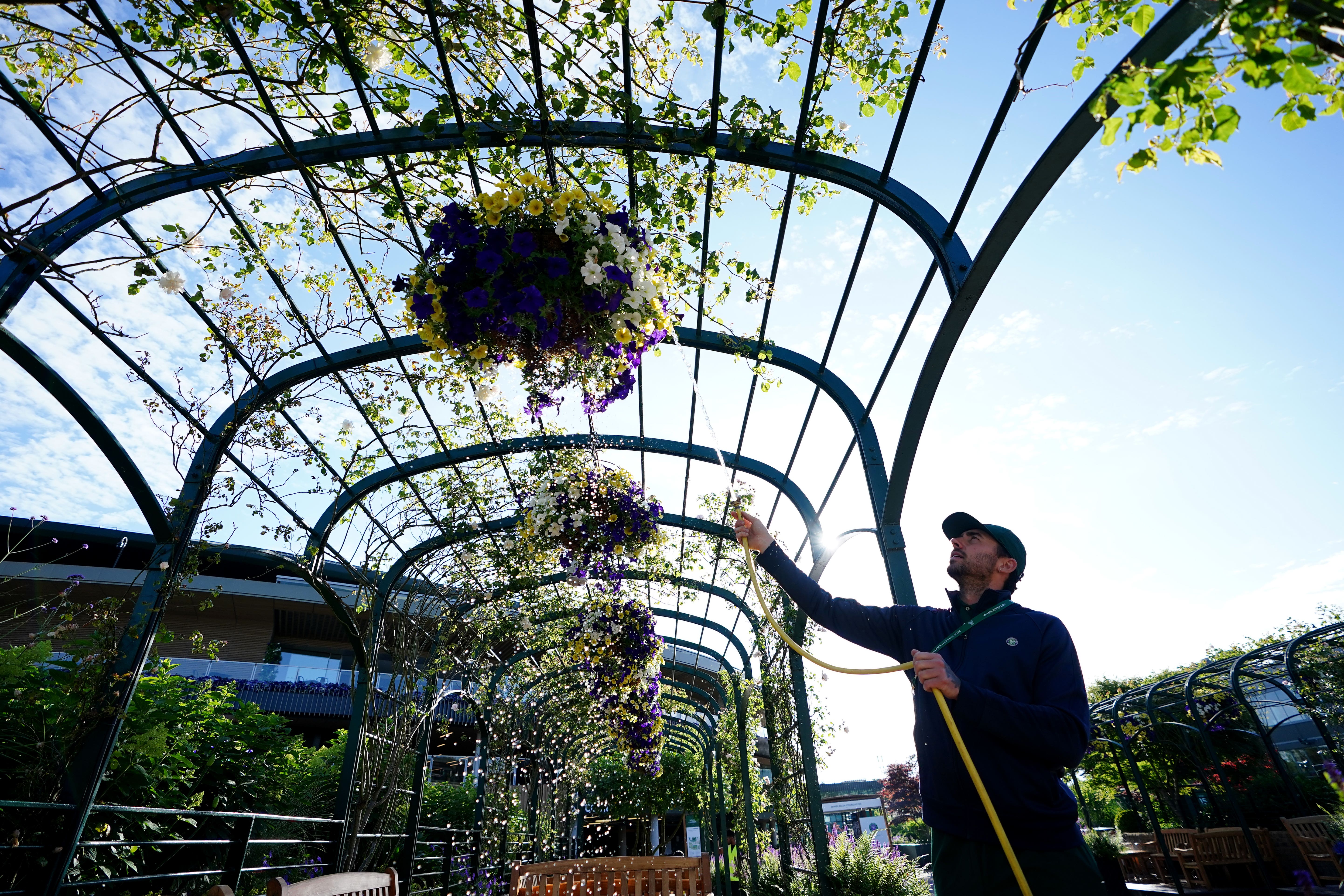Wimbledon flower displays to be peat-free, head gardener vows
Martyn Falconer supervises the floral displays at the tennis event.

Wimbledon aims to only use peat-free compost in its flower displays in the next two years, the All England Club’s head gardener has said.
Martyn Falconer said the club is already “completely peat-reduced”, with peat-free trials under way.
“We have about 100 modules and about 24 baskets that are peat-free and we are just trialling it to get the feed in and everything right so that the displays are as good,” he said.
If the trials go well next year the club could then go peat-free the year after, he said.
Wildlife campaigners have long called for the sale of peat-compost to be banned, as well as stricter laws to restore peatlands, which are the UK’s largest carbon sink.
Peatlands are also an important wildlife habitat that can hold water to reduce flooding.
Falconer said the club’s homemade compost is better than anything that can be bought in flower nurseries.
“All of our compost is homemade so some refer to it as black gold, it is such a good product, better than anything you can buy in the nurseries peat-free,” he said.
The gardener said the club also wants to use more of the food and drink that is left over during the competition for compost as well.
“We are doing quite a lot in the horticultural world,” he said.
“We take all the coffee grounds from the staff break out and put that into our compost.”
However, maintaining Wimbledon’s famous flower displays is not without its challenges, he said.
“There are a few pests and diseases around like box caterpillars that we tackle,” he said.
“Oak processionary moth is one that you have to be mindful of because you’ve got a caterpillar with some pretty nasty hairs and if they drop they can cause problems.
“They’re dealt with in the early spring with some biological spray controls which involve nasty chemicals which we mist up into the trees.
“If you catch them early in the spring then they don’t get to that stage when they turn into a caterpillar.”